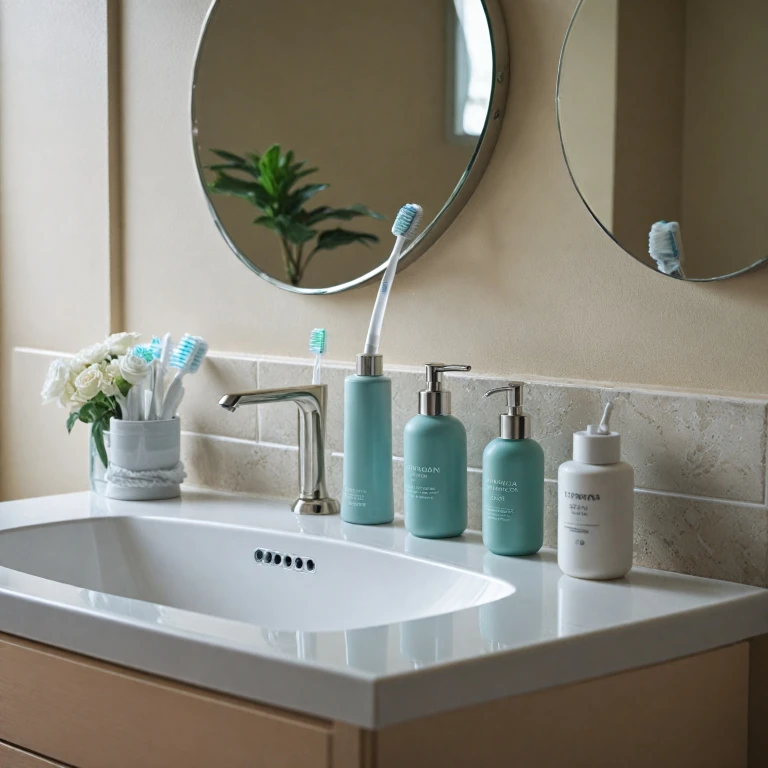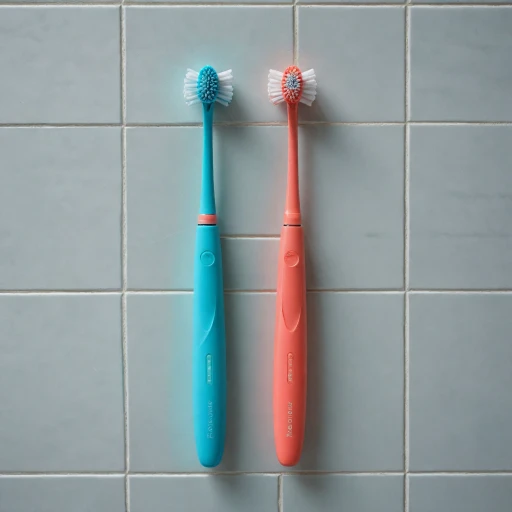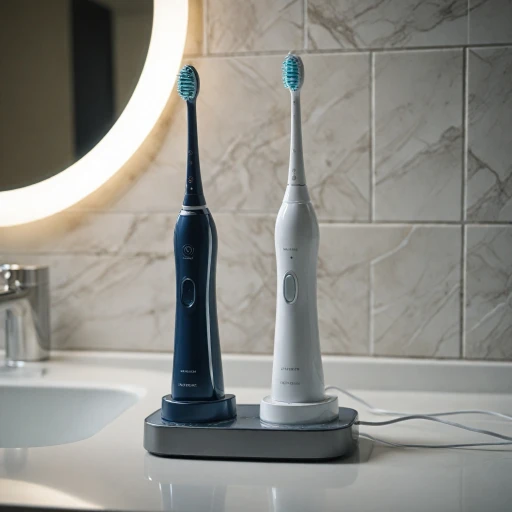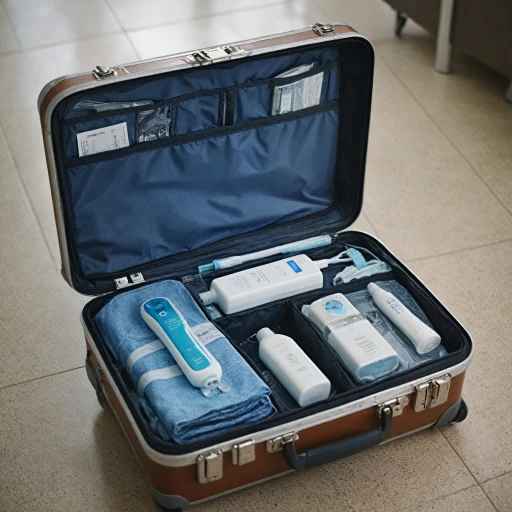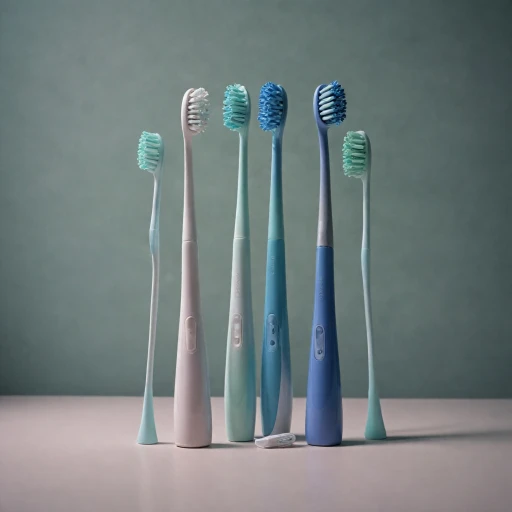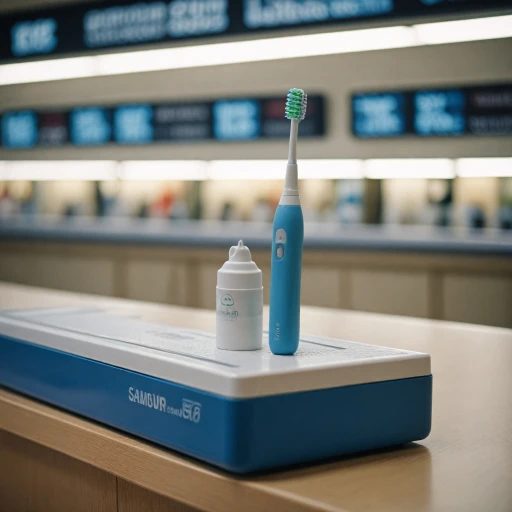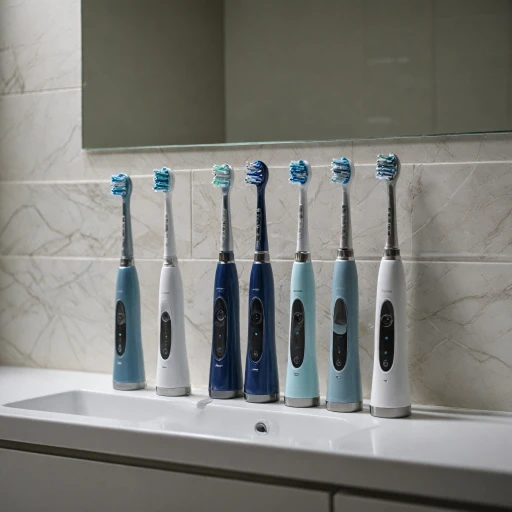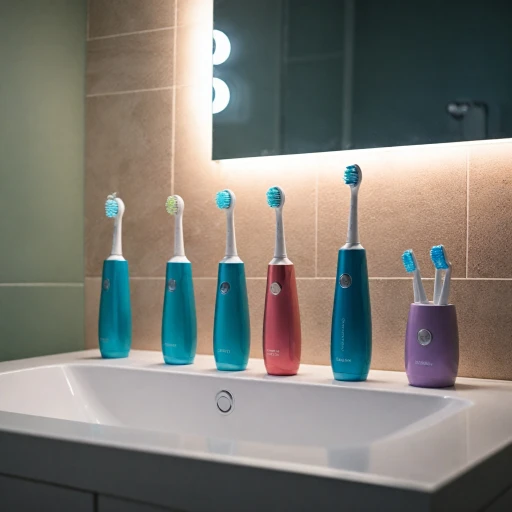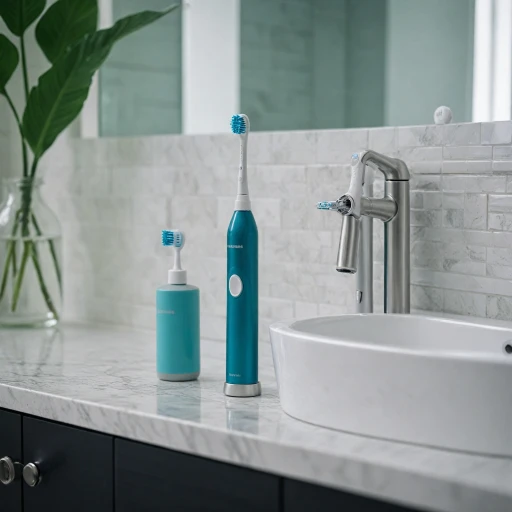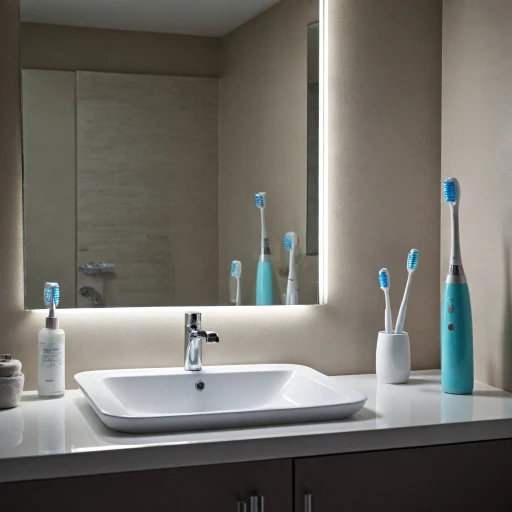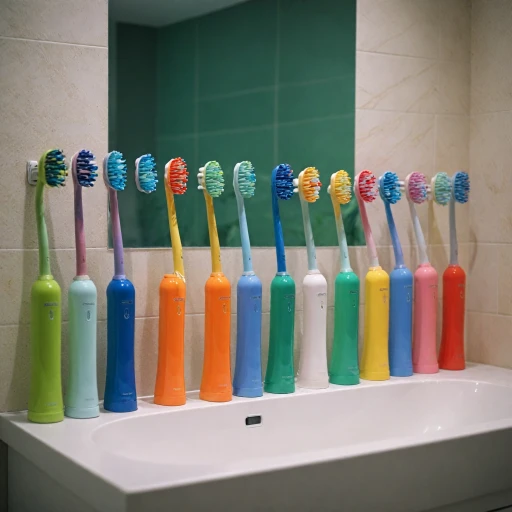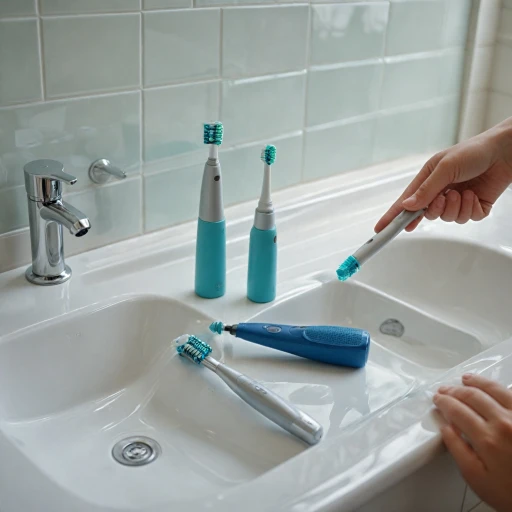
Understanding Denture Needs
Recognizing the Unique Needs of Denture Wearers
When it comes to maintaining good oral health, understanding the specific needs of denture wearers is crucial. Dentures, whether full or partial, require a different approach to oral care compared to natural teeth. This is where choosing the right toothbrush becomes essential. The goal is to ensure that both the dentures and the gums remain healthy and clean.
Unlike natural teeth, dentures are not anchored in the mouth in the same way, making them more susceptible to bacteria and plaque build-up. Therefore, proper denture care is vital. Using an electric toothbrush with soft bristles can help in effectively cleaning dentures without causing damage. The gentle motion of the electric toothbrush can aid in removing food particles and bacteria, ensuring a thorough clean.
It's also important to consider the health of the gums. Since dentures rest on the gums, maintaining gum health is essential to prevent irritation and infections. A toothbrush with a soft brush head is ideal for massaging the gums gently, promoting circulation and overall gum health.
For those who are transitioning from manual toothbrushes to electric toothbrushes, it's beneficial to understand how different models can cater to the needs of denture wearers. This is further explored in the comparison of electric toothbrush models. For more insights into choosing the right toothbrush for specific dental needs, you can explore finding the best electric toothbrush for braces.
Electric Toothbrush Features for Dentures
Key Features to Look for in an Electric Toothbrush for Dentures
When it comes to maintaining oral health and ensuring your dentures remain clean, choosing an electric toothbrush with the right features is crucial. Not all toothbrushes are made equal, and when it comes to denture care, specific attributes can make a significant difference. Whether you have partial dentures or full sets, the focus should be on gentle yet effective cleaning. Here’s what to consider:
- Soft Bristles: Look for electric toothbrushes with soft bristles as they are less likely to cause damage to dentures and sensitive gums. Harsh bristles can be abrasive, leading to scratches on the denture surface, compromising the cleaning process.
- Brush Head Design: A small and compact brush head can access hard-to-reach areas in your mouth, ensuring a more comprehensive clean. Features like rounded bristles and ergonomic design enhance comfort and effectiveness.
- Multiple Cleaning Modes: Electric toothbrushes with various cleaning modes can cater to different needs. The gentler settings are particularly beneficial for cleaning dentures without excessive force.
- Smart Technology: Some advanced electric toothbrushes come equipped with smart technology that guides you through optimal brushing techniques, which can be particularly useful for denture care.
- Battery Life: A long-lasting battery ensures that your toothbrush is always ready for use, especially if you rely on it for daily dental care.
For a detailed analysis of the best electric toothbrushes suited for denture care, you can explore our article on electric options explored to help you make an informed choice.
Comparing Electric Toothbrush Models
Caring for Dentures with Different Electric Toothbrushes
When selecting an electric toothbrush suitable for dentures, it is crucial to understand the specific features that cater to dental health. Various electric toothbrush models offer unique functionalities that can aid in maintaining dentures effectively and comfortably.
- Brush Head Design: Look for toothbrushes with brush heads that are versatile enough to clean both dentures and natural teeth. A soft-bristle brush head is essential to avoid scratching or damaging denture surfaces, enhancing your denture care routine.
- Speed and Intensity Settings: Some electric toothbrushes feature adjustable speed and intensity settings, allowing for a more tailored cleaning experience. This can be particularly useful for those with sensitive gums or partial dentures.
- Oral Hygiene Technology: Electric toothbrushes equipped with advanced technology, like oscillating-rotating or sonic movements, can improve the effectiveness of denture cleaning, contributing to better oral hygiene overall.
- Battery Life and Charging Options: Choose a toothbrush with a long battery life and convenient charging options, ensuring consistent usage and ease of maintenance.
It's also worth noting the importance of maintaining your electric toothbrush and ensuring proper hygiene. Improper use can lead to unnecessary wear and tear on your dentures. Regular inspection and replacing the brush head as necessary will enhance its longevity and performance.
Exploring electric toothbrushes specifically designed for denture care can be beneficial, providing a comprehensive understanding of what each model offers. For those interested in innovative designs, considering whether an ultrasonic U-shaped electric toothbrush might suit your needs is another option.
Proper Technique for Brushing Dentures
Mastering the Art of Brushing Dentures
Brushing dentures might seem straightforward, but certain techniques optimize cleanliness and longevity, enhancing your oral hygiene practice. While electric toothbrushes offer significant benefits for denture care, it’s crucial to implement the correct brushing methods to ensure you're not causing unnecessary wear on your dentures.
Firstly, timing plays a critical role. Consider brushing your dentures twice daily, similar to natural teeth, to maintain optimal oral health. Employing the right brush head is essential; choose a model with soft bristles to prevent scratches or damaging the denture material while ensuring a thorough clean.
While employing your preferred electric toothbrush, remember to gently maneuver the brush on your dentures. An electric toothbrush for this purpose often comes equipped with settings that regulate the pressure applied during brushing, which helps protect both your dentures and gums.
- Use reduced speed settings to ease into the brushing routine, gradually increasing intensity based on comfort.
- Hold the toothbrush at a 45-degree angle to maximize the effectiveness of the bristles reaching along the gum line, which also supports gum health.
- Focus on covering all surface areas deliberately without skipping hard-to-reach spots common with partial dentures.
- Ensure you allow the toothbrush to do most of the work; avoid the temptation to scrub manually.
Avoid using whitening pastes or hard brush heads intended for natural teeth, as these may harm the denture surface. For an additional layer of protection, consider a gentle denture brush in tandem with your electric toothbrush for a comprehensive cleaning approach. This also aids in maintaining the structural integrity of your dentures.
Exercise care in storing your toothbrush. Proper maintenance of the brush head not only extends the lifespan of your electric toothbrush but also sustains cleanliness crucial for good oral care. After brushing, thoroughly rinse your dentures and toothbrush, then leave your dentures to soak in a cleansing solution, facilitating effective denture cleaning post every use.
Brushing, combined with other techniques, ensures that both your good oral hygiene and your dentures are in tip-top shape, complementing what you've learned about choosing the right toothbrush features. Investing in understanding proper techniques enriches your overall denture care journey.
Maintenance Tips for Dentures and Electric Toothbrushes
Preserving Your Oral Care Tools
Maintaining your electric toothbrush and denture cleaning tools is crucial for effective denture care and overall oral hygiene. Knowing how to keep these oral care products in top condition not only ensures good oral health but also safeguards your investment.- Rinse and Dry: After every use, thoroughly rinse your electric toothbrush and denture brush under running water. Make sure to remove any toothpaste residue and food particles that can get stuck in the bristles and head. Once rinsed, gently shake off excess water and let the brushes air dry by storing them upright in a well-ventilated area. This will help prevent the growth of bacteria and mold, ensuring your brushing routine remains hygienic.
- Regular Replacement: The bristles of any toothbrush, whether used for cleaning dentures or natural teeth, can become frayed and less effective over time. It’s generally recommended to replace the brush head of your electric toothbrush every three months. If using a traditional denture brush, follow a similar schedule. If the bristles show signs of wear sooner, consider changing the brush head even earlier for optimal denture care.
- Proper Storage: Always store your electric toothbrush and denture cleaning tools in a clean, dry place, away from the toilet area to reduce exposure to airborne bacteria. If your brush came with a protective cap or case, use it during travel but avoid covering the brushes during normal use, as it can trap moisture.
- Battery Maintenance: For those models equipped with rechargeable batteries, ensure you follow the manufacturer's instructions for charging. Avoid overcharging, as it can reduce battery life. If you’re using a model with disposable batteries, keep spares handy to ensure you're never left without your essential denture cleaning tool.
- Deep Clean: Finally, incorporate a routine deep clean for your brushes. Once a month, soak the brush heads in a mixture of water and vinegar or a mild denture cleaning solution to disinfect and remove any lingering bacteria. This is especially important for maintaining your denture toothbrush.
Common Mistakes to Avoid
Avoiding Common Pitfalls in Denture Care and Brushing
Proper denture care and brushing with an electric toothbrush require vigilance to prevent potential mistakes that could impact oral health. Here are some common errors to steer clear of:- Using Hard Bristles: Opt for soft bristles to prevent damage to your gums and dentures. Hard bristles can wear down the denture material and irritate your gums.
- Neglecting Denture Cleaning: While brushing is crucial, don't forget the importance of dedicated denture cleaning solutions to remove bacteria and stains effectively.
- Overlooking Replacement of Electric Toothbrush Heads: Regularly replace your toothbrush head every three to four months to maintain effective cleaning. Worn bristles reduce cleaning efficiency and increase the risk of bacterial build-up.
- Incorrect Brushing Technique: Apply gentle pressure when brushing to avoid damaging the dentures and surrounding gums. Remember, forceful brushing does not guarantee cleaner teeth and could do more harm than good.
- Ignoring Battery Maintenance: Ensure your electric toothbrush is adequately charged to maintain optimal functionality. A low battery might deliver an ineffective brushing experience.
- Neglecting Regular Dental Check-Ups: See your dentist regularly to monitor the condition of your dentures and overall oral health. Professional guidance ensures that any issue is addressed promptly.
- Not Cleaning Dentures Outside the Mouth: Brushes meant for natural teeth might not be suitable for cleaning dentures. Choose a denture toothbrush designed specifically for this purpose to ensure thorough cleaning.

